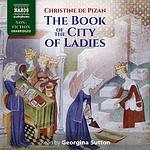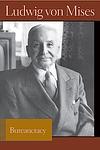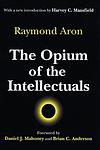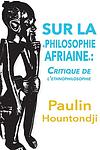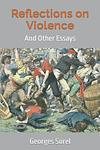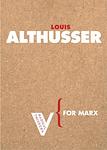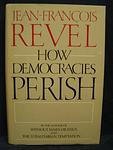The Greatest French, Austrian "Nonfiction, Political" Books of All Time
Click to learn how this list is calculated.
This list represents a comprehensive and trusted collection of the greatest books. Developed through a specialized algorithm, it brings together 305 'best of' book lists to form a definitive guide to the world's most acclaimed books. For those interested in how these books are chosen, additional details can be found on the rankings page.
Genres
The "Political" category of books encompasses works that explore the theory, practice, and history of government and politics. These books may cover topics such as political ideologies, political systems, political institutions, political movements, and political leaders. They may also examine the relationship between politics and other areas of society, such as economics, culture, and international relations. Political books can be both informative and thought-provoking, offering readers insights into the complexities of the political world and the challenges of governing in a democratic society.
Countries
Date Range
Reading Statistics
Click the button below to see how many of these books you've read!
Download
If you're interested in downloading this list as a CSV file for use in a spreadsheet application, you can easily do so by clicking the button below. Please note that to ensure a manageable file size and faster download, the CSV will include details for only the first 500 books.
Download-
1. The Second Sex by Simone de Beauvoir
This influential work explores the treatment and perception of women throughout history, arguing that women have been repressed and defined only in relation to men. The author presents a detailed analysis of women's roles in society, family, work, and in the creation of their own identities. She discusses the concept of 'the other' and how this has been used to suppress women, while also examining the biological, psychological, and societal impacts of this oppression. The book is a seminal text in feminist theory, challenging traditional notions of femininity and calling for equality and freedom for women.
The 130th Greatest Book of All Time -
2. Democracy in America by Alexis de Tocqueville
This influential book offers an in-depth analysis of the strengths and weaknesses of 19th century American democracy. The author, a French political thinker, provides a detailed examination of the democratic process and its impact on society, politics, and the economy. The work highlights the importance of civil society, local institutions, and the spirit of equality in ensuring the stability of democracy. It also delves into the dangers of majority tyranny, the potential for democratic despotism, and the critical role of religion and morality in sustaining a democratic nation.
The 239th Greatest Book of All Time -
3. The Social Contract by Jean-Jacques Rousseau
"The Social Contract" is a philosophical work that discusses the concepts of sovereignty and the social contract. The author argues that all men are born free, but everywhere they are in chains, suggesting that society and its rules are a form of enslavement. However, he also posits that a social contract, where individuals come together to form a collective or a society, is necessary for the preservation of their freedom. This contract allows for the creation of a sovereign that is made up of the collective and expresses the general will, which is always right and tends towards the public utility.
The 533rd Greatest Book of All Time -
4. The Book of the City of Ladies by Christine De Pizan
"The Book of the City of Ladies" is a classical work in which the author, through allegorical characters, builds an imaginary city for women to illustrate their significant contributions to society. The book is a defense of women, arguing against the popular notion of the time that women were inferior to men. It showcases the author's deep knowledge of the past, referencing numerous notable women from history and mythology, emphasizing their virtues, intelligence, and moral fiber.
The 700th Greatest Book of All Time -
5. The Road to Serfdom by Friedrich von Hayek
"The Road to Serfdom" is a classic work of political philosophy and economics that argues against the concept of socialism and centralized economic planning. The author asserts that such systems inevitably lead to totalitarianism, infringing upon individual liberties and stifling innovation. The book further posits that only through free-market capitalism can societies maintain political and economic freedom. The author also explores the dangers of government control over means of production, illustrating that it leads to a loss of personal freedoms and the rise of dictatorial regimes.
The 985th Greatest Book of All Time -
6. Discipline and Punish by Michel Foucault
This book delves into the historical evolution of the penal system, examining how Western societies have transitioned from a regime of violent, public physical punishment to a more subtle form of surveillance and control. It introduces the concept of the "panopticon," a metaphor for modern disciplinary societies that exercise power through observation and normalization rather than through overt physical coercion. The work explores the relationship between power, knowledge, and social control, arguing that disciplinary mechanisms are embedded in various institutions, such as schools, hospitals, and prisons, shaping individuals and maintaining order in society.
The 1064th Greatest Book of All Time -
7. The Constitution of Liberty by Friedrich von Hayek
This book is a comprehensive analysis of the concept of liberty, emphasizing the importance of individual freedom in political, societal, and economic contexts. The author argues that a free society, where individuals can act according to their own decisions and plans, is the most effective system for human progress. He also explores the relationship between law and liberty, the role of government in a free society, and the challenges to liberty posed by concepts such as social and economic justice.
The 1170th Greatest Book of All Time -
8. Capitalism, Socialism, and Democracy by Joseph A. Schumpeter
The book provides an in-depth analysis of the interplay between capitalism, socialism, and democracy, arguing that capitalism is a catalyst for creative destruction and innovation, but also paves the way for socialism due to its inherent instability and tendency to create wealth inequality. It further suggests that democracy, while imperfect, is the best system to manage these economic systems. The author presents a unique perspective on the inevitable rise of socialism, not through revolution as Marx predicted, but through the legal and systematic erosion of capitalism by democratic means.
The 1174th Greatest Book of All Time -
9. Émile by Jean-Jacques Rousseau
The book in question is a seminal work in the field of education and philosophy, presenting a comprehensive treatise on the nature of man and the importance of education tailored to the individual's developmental stages. The author argues for a system of education that allows for the natural development of a child's abilities and senses, advocating for learning through experience rather than traditional academic instruction. The narrative follows the growth of a fictional boy, illustrating the author's educational philosophy through his upbringing, which emphasizes moral and emotional development alongside intellectual growth. The work challenges conventional notions of education and has had a profound impact on modern educational theory.
The 1359th Greatest Book of All Time -
10. The Rebel by Albert Camus
"The Rebel" is a philosophical exploration of rebellion and revolution. It dissects the nature and origins of rebellion, arguing that it arises from a basic human refusal to accept injustice. The book delves into the many forms rebellion can take, from personal revolt to political revolution, and examines the consequences and ethics of each. The author also critically evaluates the rebellious attitudes of various historical figures and movements, highlighting the potential for rebellion to either affirm or destroy human dignity.
The 1411th Greatest Book of All Time -
11. Bureaucracy by Ludwig von Mises
"Bureaucracy" is a critical examination of the structure and function of bureaucracies in both the public and private sectors. The author argues that bureaucratic management, with its focus on rules and regulations, is not only inefficient but also stifles innovation and individual initiative. He further contends that these problems are inherent in the nature of bureaucracy itself and are not simply due to poor management or corruption. The book also explores the impact of bureaucracy on economics, politics, and society as a whole.
The 2694th Greatest Book of All Time -
12. The Provincial Letters by Blaise Pascal
"The Provincial Letters" is a series of 18 letters written by a philosopher and mathematician, where he defends his friend Antoine Arnauld, an opponent of the Jesuits, who was on trial before the faculty of theology in Paris for his controversial religious works. The letters mockingly criticize the morals and ethics of Jesuits, and the casuistry they used to justify moral laxity, while also debating various philosophical and theological issues. The letters are considered a masterpiece of French prose and had a significant influence on the French language.
The 3076th Greatest Book of All Time -
13. Days In The Caucasus by Banine
"Days In The Caucasus" is a captivating memoir that follows the personal journey of a young woman living in the Caucasus region during the early 20th century. The author beautifully recounts her experiences growing up in a multicultural society, filled with vivid descriptions of the diverse landscapes, traditions, and people she encounters. From her childhood adventures to her first love, the author provides an intimate glimpse into a world on the brink of change, capturing both the joys and challenges of life in the Caucasus.
The 3279th Greatest Book of All Time -
14. The Opium Of The Intellectuals by Raymond Aron
The book in question is a critical examination of the prevailing political ideologies and intellectual trends of the mid-20th century, particularly focusing on the seductive nature of Marxist thought among European intellectuals. The author argues that these intellectuals often embraced Marxism not for its empirical validity but as a secular religion, an "opium" that provided a comforting sense of certainty and moral superiority. The work challenges the dogmatic adherence to ideological orthodoxy and calls for a more skeptical, empirical approach to social and political analysis, advocating for the values of liberal democracy and the importance of individual freedom over utopian visions.
The 3279th Greatest Book of All Time -
15. The Order of Things by Michel Foucault
"The Order of Things" is a philosophical exploration of the historical changes in the human sciences, including economics, natural history, and philology. The author delves into the concept of 'epistemes' or the unconscious rules that govern the way people perceive the world, and how these have changed over the centuries. The book challenges the idea that knowledge has progressively improved over time, instead suggesting that each era has its own unique framework for understanding and interpreting the world.
The 3638th Greatest Book of All Time -
16. Portrait Du Colonisé Suivi De Portrait Du Colonisateur by Albert Memmi
"Portrait Du Colonisé Suivi De Portrait Du Colonisateur" is an insightful and thought-provoking exploration of the complex dynamics between the colonized and the colonizer in the context of French colonialism. Through a series of powerful portraits, the author delves into the psychological, social, and cultural aspects of both parties, shedding light on the dehumanizing effects of colonization on the colonized and the inherent contradictions within the colonizer's mindset. This book offers a nuanced analysis of the power dynamics and the lasting impact of colonialism, making it a significant contribution to postcolonial literature.
The 3791st Greatest Book of All Time -
17. Sur La Philosophie Africaine by Paulin Hountondji
"Sur La Philosophie Africaine" is a thought-provoking exploration of African philosophy by Paulin Hountondji. The book challenges the prevailing notion that African thought is inherently inferior to Western philosophy, advocating for a reevaluation of African intellectual traditions. Hountondji critically examines the impact of colonialism on African philosophy and argues for the development of a truly African philosophical framework that embraces cultural diversity and challenges Eurocentric biases. Through his insightful analysis, Hountondji highlights the richness and complexity of African thought, making a compelling case for its recognition and inclusion in the global philosophical discourse.
The 4095th Greatest Book of All Time -
18. The Spirit Of The Laws by Montesquieu
"The Spirit of the Laws" is a foundational text in the fields of political theory and sociology, which analyzes the factors that drive the laws and rules governing different types of governments. The author explores how laws are shaped by the nature and principle of each government type, such as republics, monarchies, and despotisms, as well as by the climate, geography, economy, and customs of the region. This work is particularly renowned for articulating the theory of separation of powers, a concept that has deeply influenced modern democratic systems by advocating for dividing governmental power among separate branches to prevent any one branch from becoming too dominant.
The 4688th Greatest Book of All Time -
19. Black Skin, White Masks by Frantz Fanon
The book explores the complex effects of colonialism on the identities and psyches of black people. It delves into the psychological and social impacts of racism, analyzing how the internalization of colonial stereotypes leads to a fractured sense of self among the colonized. The author argues that black people are forced to wear "white masks" to navigate a world dominated by white values and expectations, leading to significant psychological distress and identity conflicts. The work is a critical examination of race, identity, and the lingering effects of colonial oppression.
The 4688th Greatest Book of All Time -
20. Reflections On Violence by Georges Sorel
"Reflections on Violence" is a philosophical treatise that explores the role of violence in achieving social transformation and the establishment of a proletarian state. The author argues that the conventional ethical and legal frameworks of society are inadequate for the working class to achieve real power. Instead, he advocates for the use of violence as a necessary and morally justifiable means for the proletariat to overthrow capitalist systems. Central to his thesis is the concept of the "general strike," which he sees as an expression of pure proletarian violence and a direct action that can inspire unity and revolutionary fervor among the working class, ultimately leading to the collapse of the existing social order and the creation of a new socialist society.
The 5517th Greatest Book of All Time -
21. For Marx by Louis Althusser
"For Marx" is a collection of essays that delve into the complexities of Marxist theory, aiming to rejuvenate and redefine Marxist philosophy in the context of the 20th century. The book critically examines existing interpretations of Marxism while introducing the concept of "theoretical practice." The author argues for the scientific rigor of Marxist thought and emphasizes the importance of ideology's role in political struggles. Through a structuralist approach, the work seeks to distance itself from humanist and economistic readings of Marxism, advocating for a return to the foundational texts and insisting on the revolutionary potential embedded in rigorous theoretical analysis.
The 5517th Greatest Book of All Time -
22. The Society Of The Spectacle by Guy Debord
"The Society of the Spectacle" is a critical philosophical treatise that explores the ways in which modern society is dominated by the commodification of social life and the pervasive influence of mass media. The author argues that authentic social interactions have been replaced by mere representations and appearances, facilitated by an array of spectacles—events, images, and media that serve to maintain the status quo by promoting passive recognition and consumption rather than active participation. This work delves into the consequences of living in a society where everything that was directly lived has moved away into a representation, examining the implications for individual autonomy and social change.
The 5517th Greatest Book of All Time -
23. Memoirs Of A Revolutionary by Victor Serge
"Memoirs of a Revolutionary" presents a vivid account of political activism and survival during a turbulent period in 20th-century Europe. The author, a committed revolutionary, provides an insider's perspective on the rise and fall of various socialist movements, detailing his involvement in the Russian Revolution and subsequent disillusionment with the Stalinist regime. Through his narrative, he explores the moral and ethical challenges faced by intellectuals and activists in a time of revolutionary fervor and political repression, offering a poignant reflection on the struggles and sacrifices of those who dedicate their lives to the cause of social change.
The 5517th Greatest Book of All Time -
24. How Democracies Perish by Jean François Revel
This book provides a deep analysis of the threats faced by democracies, specifically from totalitarian regimes. The author argues that democracies are often their own worst enemies, being too tolerant and indecisive, which can lead to their downfall. He further discusses how democracies can be manipulated by totalitarian regimes through propaganda and misinformation. The book serves as a warning and a call to action for democratic societies to recognize these threats and take steps to defend their values and institutions.
The 5627th Greatest Book of All Time -
25. The New Science of Politics by Eric Voegelin
"The New Science of Politics" is a seminal work in political philosophy that explores the nature of political societies, the symbolism of political power, and the essence of modernity. It delves into the evolution of political thought, from ancient civilizations to the modern era, and critically examines the ideologies that have shaped the contemporary political landscape. The author argues that understanding the spiritual and religious dimensions of political reality can provide a more comprehensive view of society and governance. The book is a profound meditation on the philosophy of history and a radical critique of modern political ideologies.
The 5738th Greatest Book of All Time
Reading Statistics
Click the button below to see how many of these books you've read!
Download
If you're interested in downloading this list as a CSV file for use in a spreadsheet application, you can easily do so by clicking the button below. Please note that to ensure a manageable file size and faster download, the CSV will include details for only the first 500 books.
Download


